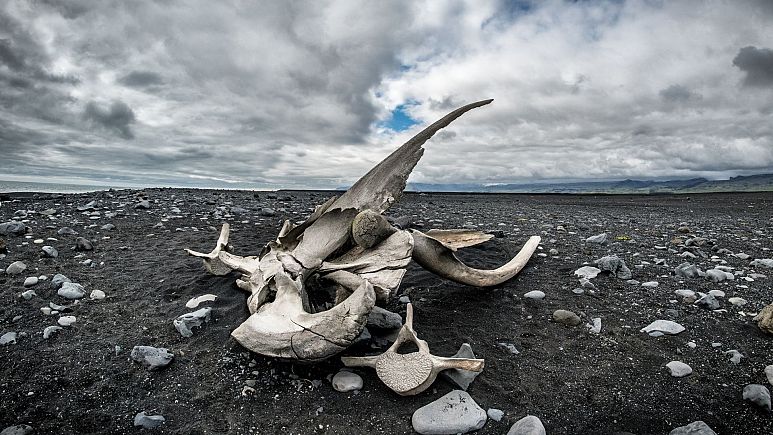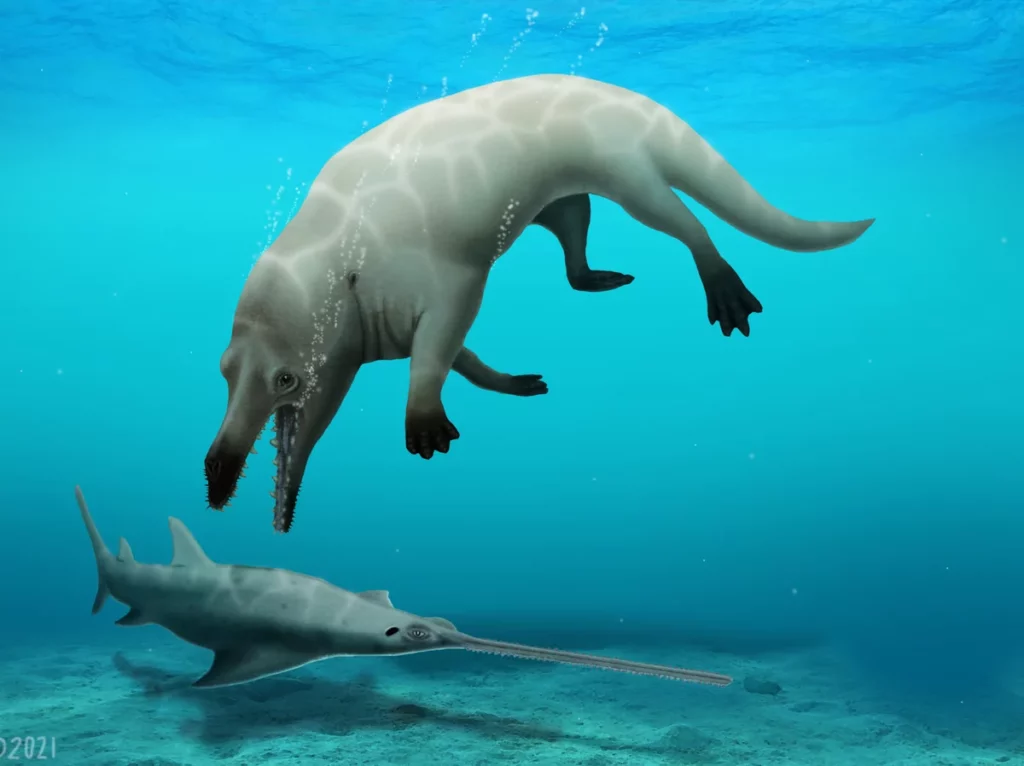The discovery of a previously unidentified four-legged whale species’ 43 million-year-old fossil by scientists sheds light on the evolution of whales from land to sea.
According to the research team, the recently discovered amphibious whale was discovered in Egypt and is a member of the Protocetidae, a family of extinct whales that is situated in the center of that transition.
A variety of findings illustrating the evolution of whales have been made in the Western Desert of Egypt’s middle Eocene strata, where this fossil was discovered. This area was originally covered by sea. The Mansoura University Vertebrate Palaeontology Center then conducted research on it (MUVP).
 Whale fossil
Whale fossil
The whale, known as Phiomicetus anubis, was probably a top predator and had an estimated body length of three meters and a body weight of 600 kilograms. Its incomplete skeleton proved that it was the most primitive protocetid whale yet discovered in Africa.
According to Abdullah Gohar of MUVP, the paper’s principal author, Phiomicetus anubis is a significant new whale species and a crucial discovery for Egyptian and African paleontology.
The researchers claim that despite recent fossil findings, the overall picture of early whale development in Africa has largely remained a mystery. Additional research in the area may uncover fresh information regarding the evolution of whales from amphibious to entirely aquatic.
The discovery of the new whale has prompted research on the genesis and coexistence of ancient whales in Egypt as well as questions regarding past ecosystems.

An extinct whale with four legs has a fossil that has been found by a team of scientists. Phiomicetus anubis is depicted in this visual reconstruction consuming a sawfish. Whales are they in danger?
Because they are at the top of the food chain, whales are crucial to the health of our oceans as a whole. They are particularly important for removing carbon from the atmosphere.
In their lives, whales sequester a significant amount of CO2. They are essential to addressing the climate catastrophe because they can store tons of carbon dioxide in their bodies.
However, according to WWF, six of the 13 species of great whales are considered endangered or vulnerable.
Threats include habitat deterioration, toxins, climate and ecosystem change, noise from industrial activity, illegal whaling, decreased prey quantity owing to overfishing, oil spills, and disruption from whale watching activities.
It is essential that we maintain a robust population of these top predators because, if whales are threatened, that is bad news for all of us.








